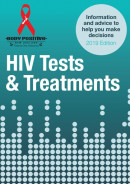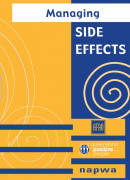There are currently several classes of antiretrovirals that work in different ways against HIV.
| Antiretroviral drug class | Examples |
| Nucleoside reverse transcriptase inhibitors | Abacvir (Ziagen®), emtricitabine (Emtriva®), lamivudine (Zetlam®, 3TC®, Zeffix®), tenofovir disoproxil, zidovudine (Retrovir®) |
| Protease inhibitors | Atazanavir, darunavir (Prezista®), lopinavir (Aluvia®), ritonavir (Norvir®) |
| Non-nucleoside reverse transcriptase inhibitors | Efavirenz (Stocrin®), etravirine (Intelence®), nevirapine (Viramune®) |
| Integrase strand transfer inhibitors | Dolutegravir (Tivicay®), raltegravir (Isentress®) |
Fixed-dose combinations
Some antiretroviral medicines have been combined into 1 pill, known as a "fixed-dose combination". This means that the most common treatments for people just diagnosed with HIV involve taking just 1 or 2 pills a day.
Examples are:
- Tenofovir disoproxil/emtricitabine
- Abacavir/lamivudine (Kivexa ®)
- Efavirenz/emtricitabine/tenofovir
- Dolutegravir/lamivudine (Dovato ®)
- Lamivudine/Zidovudine
Read a complete list of antiretroviral medicines currently available in Aotearoa New Zealand(external link).









